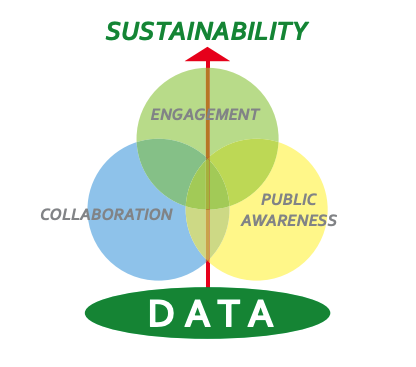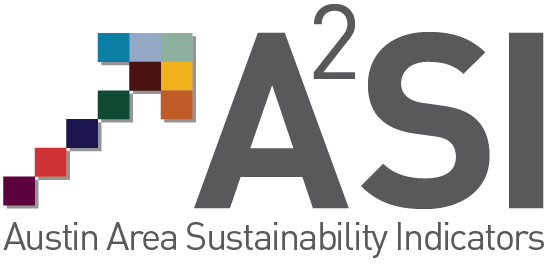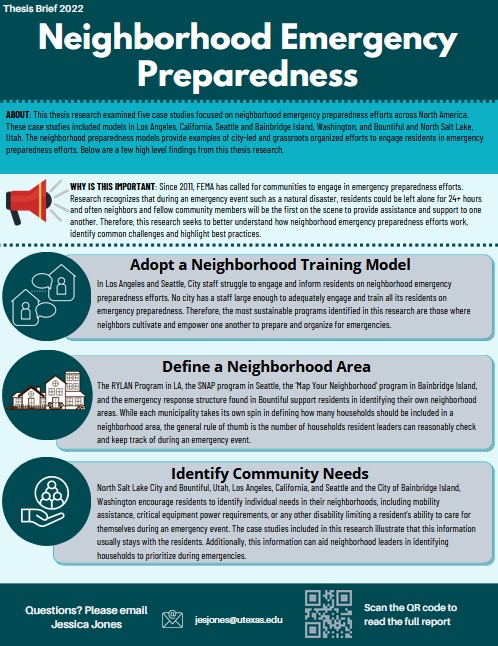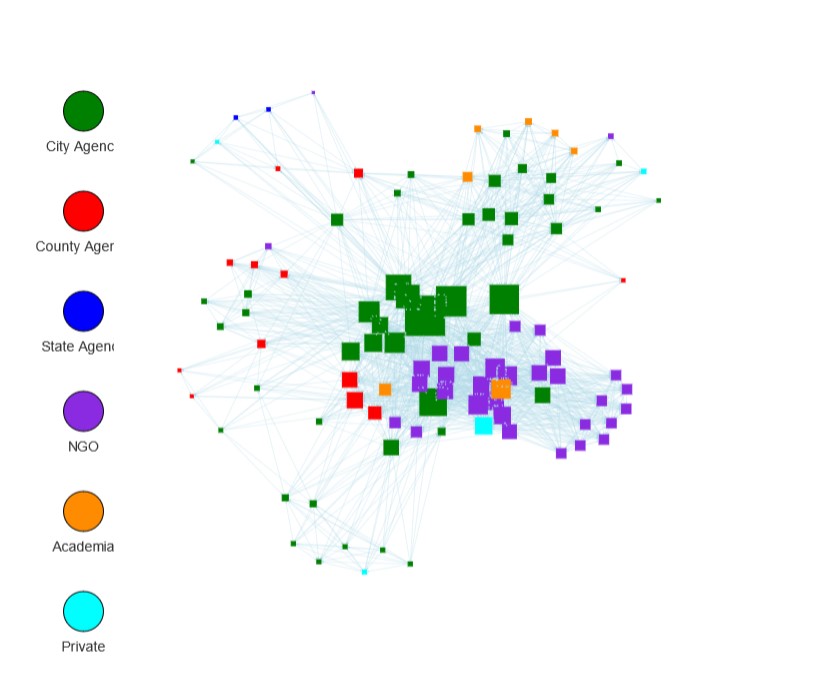
Resilience Hub Network Analysis
This summer, A2SI had two undergraduate students, Kameryn Overton and Miles Baker support heat and resilience hub research. As part of their research, Kameryn and Miles created a network analysis of resilience hub work in Austin. Click here to see their research. Kameryn is from Tuskegee University and is studying environmental science. Miles is from Furman University and is studying sustainability science. Kameryn and Miles were sponsored by the NSF-funded Research Experience for Undergraduates Program.
Graduate Thesis: When Neighbors Prepare Together
This thesis research examined five case studies focused on neighborhood emergency preparedness efforts across North America. These case studies included models in Los Angeles, California, Seattle and Bainbridge Island, Washington, and Bountiful and North Salt Lake, Utah. The neighborhood preparedness models provide examples of city-led and grassroots organized efforts to engage residents in emergency preparedness efforts. Authored by Jessica Jones, formed A2SI Graduate Research Assistant, current Social Science/Humanities Research Associate at the LBJ School of Public Affairs.
For Thesis Brief: Download here
For Full Thesis: Download here
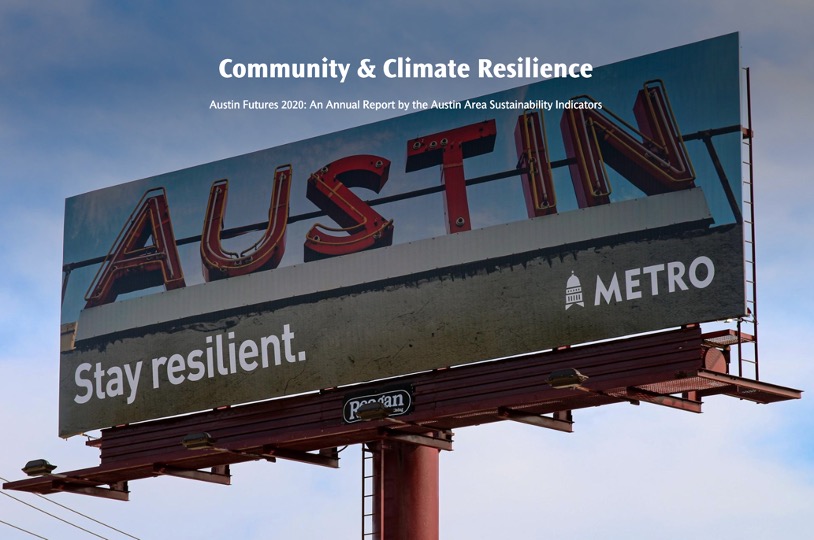
Austin Futures 2020 Report
July 2020
Building on the Austin Climate Vulnerability report, the Austin Futures 2020 takes a deep dive into the nonprofits and public agencies in the Austin Area that are working to make Austin more resilient. Blending qualitative research, narrative, and A2SI data, the 2020 report is published as an Arc GIS storymap that is accessbile by clicking this link. The web address for report is: https://arcg.is/Oqbaf.
Additional and complementary research was conducted this year as an Urban Studies capstone thesis project, which also took the form of a storymap.
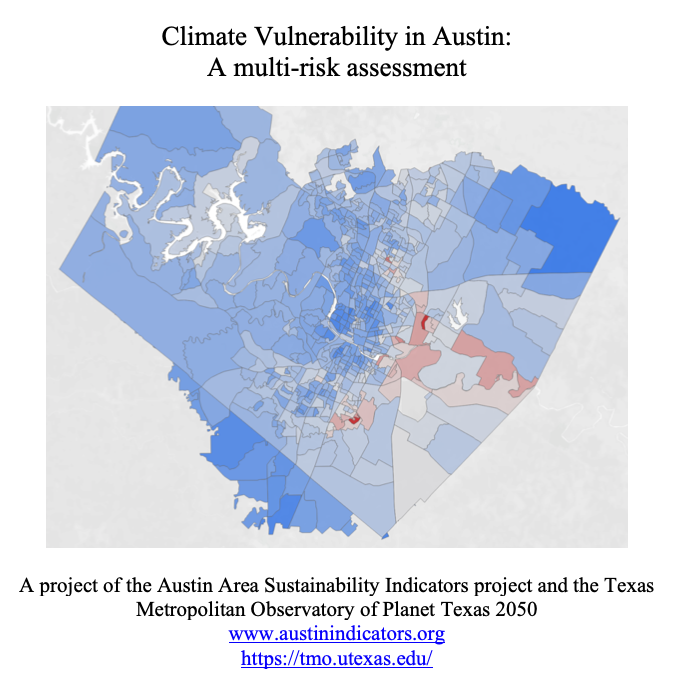
Austin Climate Vulnerability Report
February 2020
Download Climate and community resilience refers to a set of indicators to assess the risks that certain climate-related hazards pose, how those risks are spatially and socially distributed, and how households, neighborhoods and cities can build resilience. Climate-related hazards – flood, wildfire, extreme heat, among others – causes damage and loss to property, infrastructure, livelihoods, service provision and environmental resources. Some communities are disproportionately exposed to and affected by climate hazards more than others based on social vulnerability. We present a multi-risk assessment that considers how hazard risk and vulnerability interact. We first assess social vulnerability and each risk separately (considering for each hazard a specific analysis of exposure and vulnerability) and then the aggregation allows a multi-risk index evaluation.
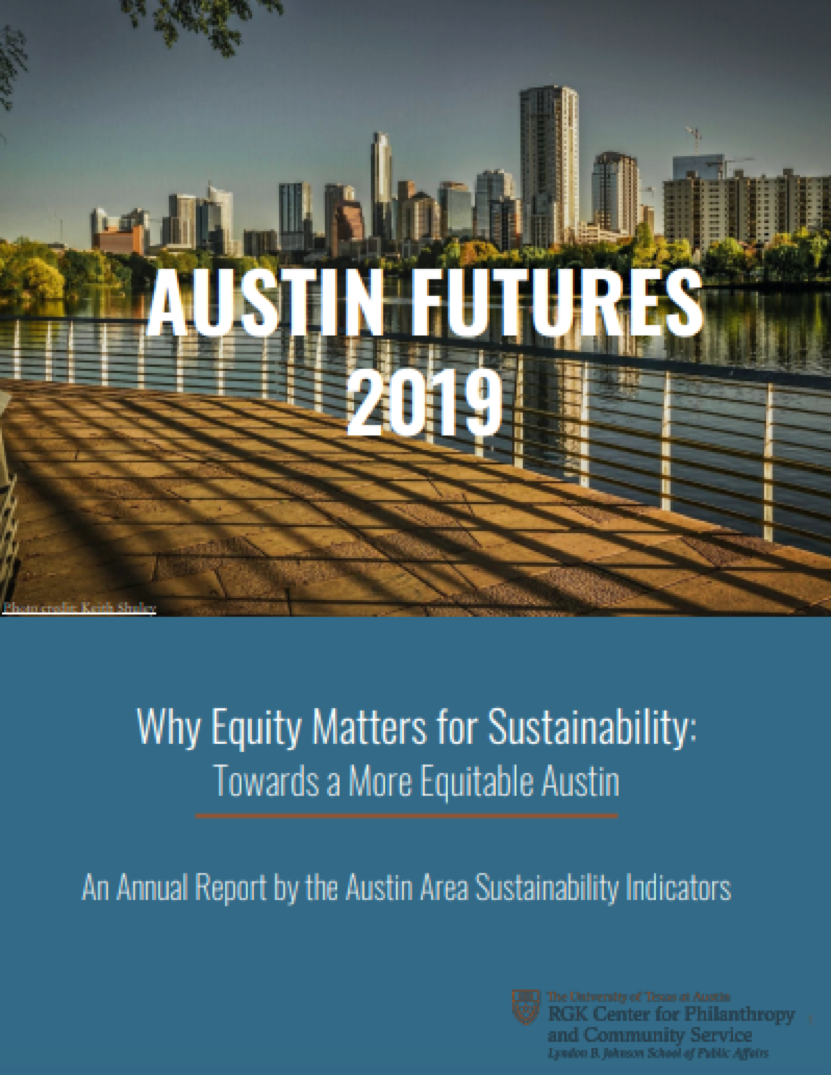
Austin Futures 2019 Report
March 2019
Although the Austin Area frequently leads the nation on metrics of local economy, safety, and desirability, the reality of profound economic segregation and inequality limit the quality of life for too many residents. Policies and programs that address affordability and displacement pressure on vulnerable and marginalized communities are needed now.
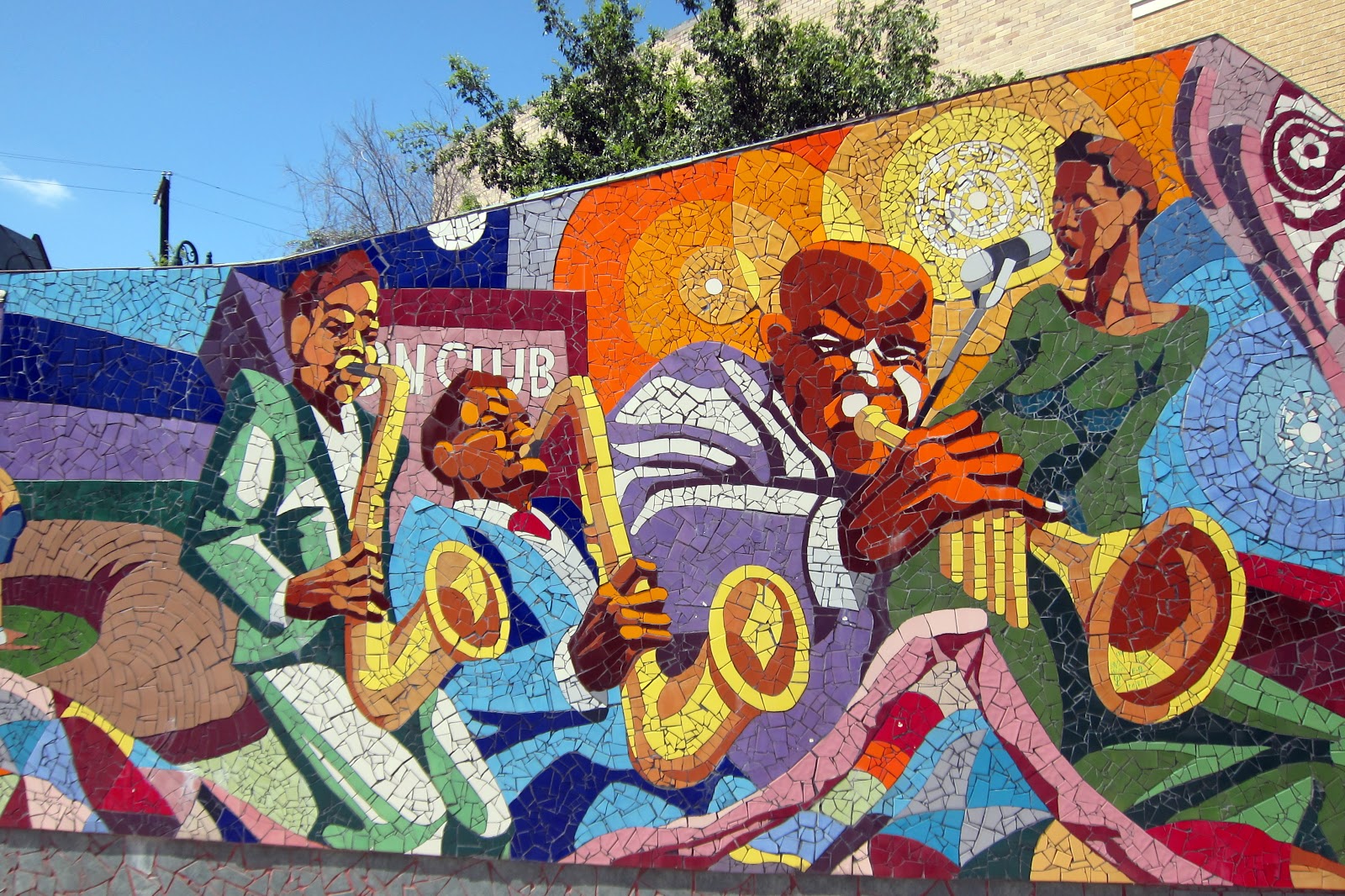
2018 Austin Area Social Capital Report
December 2018
Building a healthy community requires investments in the social determinants of health. Social capital, or social cohesion, plays a role in how healthy Austin Area residents are and partially explains disparities between them.
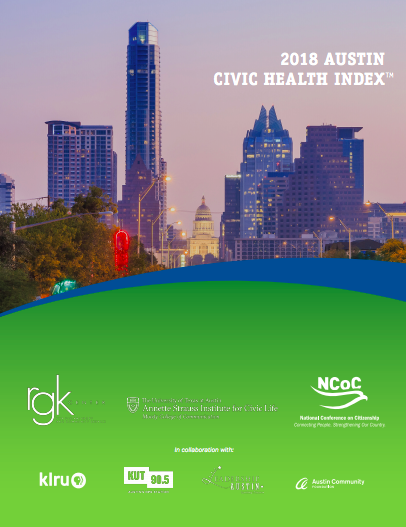
2018 Austin Civic Health Index
November 2018
Austin Area residents vote at higher rates than Texas as a whole. People’s quality of life is profoundly influenced by people’s engagement in their communities, their civic associations, their networks, and the characteristics of their neighborhoods. The 2018 Austin Civic Health Index seeks to catalyze this conversation on civic health in the Greater Austin area.
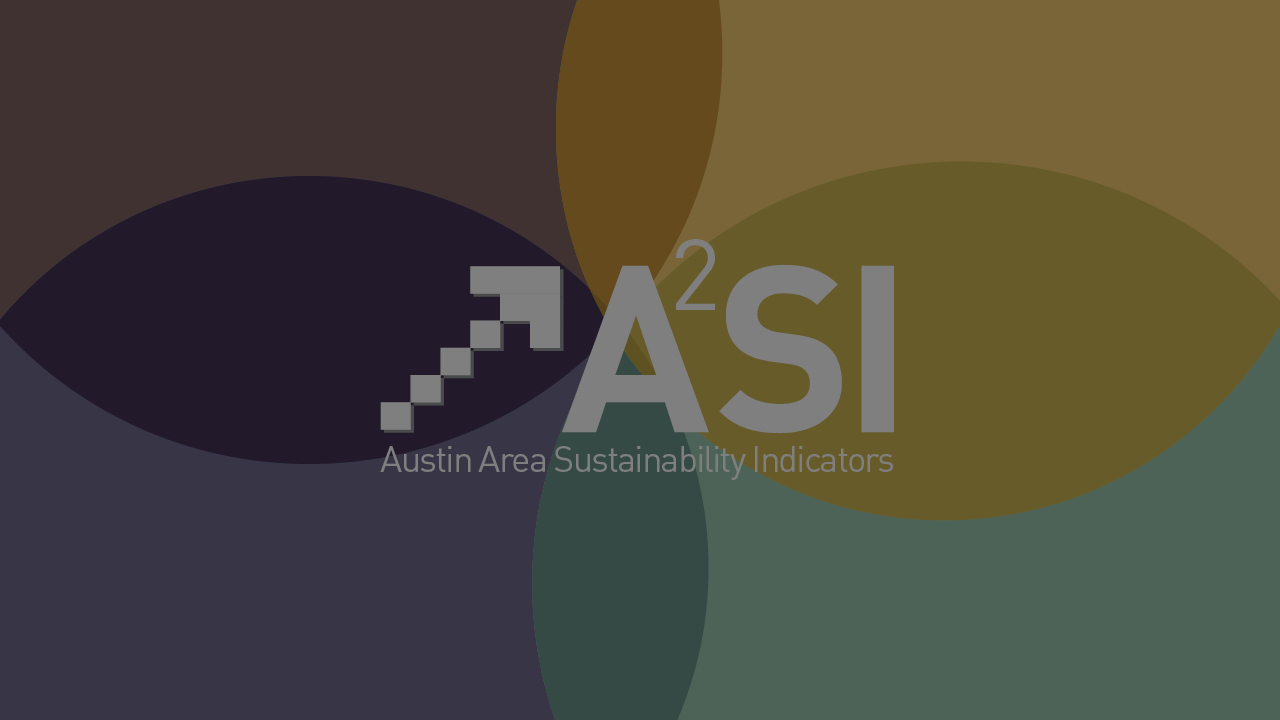
2016 Indicator Reports
November 2018
Data reports and analyses across the nine indicator themes.
